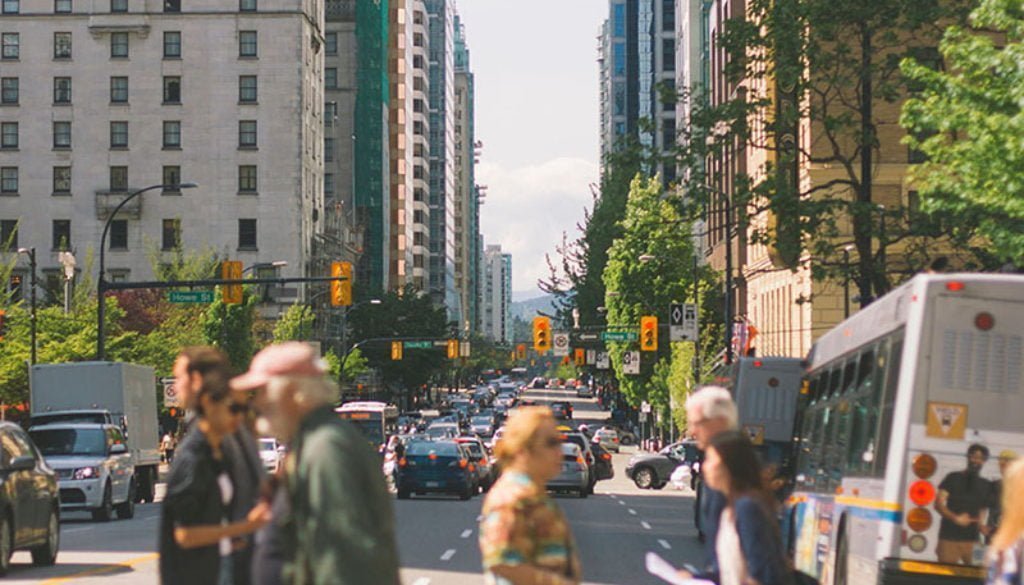To Impact Health in Cities, We Must Share Lessons, Locally and Globally
Ashley CarelockThe world is changing, and it’s changing fast. According to the United Nations, more than 66 percent of the world’s population is projected to be “urban” by the year 2050. What does this mean? While the word “urban” may have different connotations to different audiences, Drexel University’s Urban Health Collaborative uses it to describe dense populations of homes in cities and surrounding urban areas.
Urbanization is nothing new, but it is happening rapidly. And while cities can create opportunities for health, these same environments can also adversely impact the health and wellness of individuals living there. We’re not just talking about housing density–although housing can strain communities, and add stress or increase hazardous exposures, causing poor mental and physical health.
We’re also talking about other health challenges facing cities, such as threats from infectious and chronic disease, environmental exposures, violence, and more. Think asthma. Air pollution. Cardiovascular disease. Access to healthy foods and job opportunities. While no one researcher has found a catch-all cure to easing these concerns for urban communities, it’s clear we have lessons to share.
Understanding the causes of these threats can counteract these problems and create healthy cities during this explosion of urban growth. Which is why the Drexel Urban Health Collaborative is excited to host the 2017 Urban Health Symposium, September 7th and 8th, at the Dornsife School of Public Health. The event will bring together urban health researchers, practitioners, and policymakers to share lessons from research happening locally, across the U.S., and worldwide. As urbanization increases at a rapid pace, it’s increasingly important to reach across disciplines, share innovative solutions to urban challenges, and build partnerships within and across our communities.
Here in Philadelphia and throughout major U.S. cities, residents are faced with displacement as a result of neighborhood change and gentrification. Neighborhood by neighborhood, long-term residents struggle with increased housing costs as a young, more affluent influx of residents move into the community.
Elsewhere, residents in informal urban settings, such as Belo Horizonte in Brazil, are faced with health challenges as continuous construction, improvised waste disposal facilities, and soil instability impact their homes. This is not unlike the colonias in the border towns of south Texas, where residents live in ramshackle structures with limited access to water and sewer service. In communities such as these, researchers have found that residents’ health problems can go untreated, whether through lack of health care access or the feeling that local health care workers condescend to them. Researchers such as Waleska Teixeira Caiaffa, MD, PhD, MPH are studying the impact of expansion of access to public services, including health and education, and the impact of upgrades and investments in informal urban settings. Dr. Caiaffa will be speaking at the Symposium to discuss the challenges and opportunities in urban health from a global perspective.
In urban communities from Seattle, Washington to Mecklenburg, North Carolina, we’ve identified and invited researchers who are developing partnerships to identify challenges and define ways to achieve healthier, safer, and more livable communities. By connecting those in housing, social services, population health, and economic development, they are building community partnerships for urban health action.
We can address issues faced by urban residents, but it starts by sharing knowledge and capitalizing on urban policies and experiments that work. The Urban Health Symposium will feature health leaders from, Chicago, San Francisco, and Philadelphia, as well as global health leaders from Australia, Brazil, India and South Africa. Along with Dean Ana Diez Roux, I invite you to join us at the Drexel University 2017 Urban Health Symposium this September to spark conversation and energize work on urban places and health. We hope to see you there.






All comments will be reviewed and posted if substantive and of general interest to IAPHS readers.